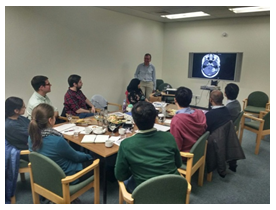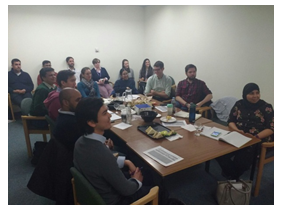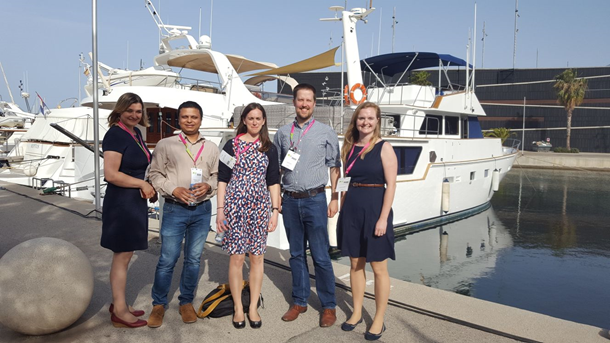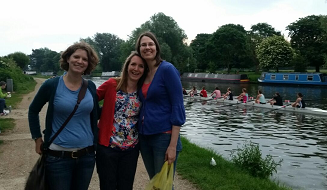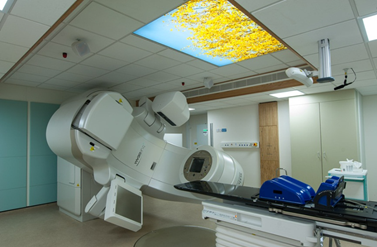
The Specialty of Clinical Oncology
We are holistic cancer physicians, utilising all aspects of cancer treatment. We administer radiotherapy, systemic therapies including chemotherapy, immunotherapy, targeted molecules, endocrine therapies, and radioisotopes to treat cancer with both curative and palliative intent. We are active participants of a multidisciplinary team of doctors and allied professionals which also includes surgeons, medical oncologists, palliative care physicians, radiologists, histopathologist, and clinical nurse specialists.
The treatment of cancer patients is both challenging and rewarding. The prognosis of many cancer patients is better than those with other chronic illnesses and for those with incurable disease improving wellbeing in combination with longevity is a in important and deeply satisfying goal for Clinical Oncologists and as equally important as cure.
Our specialty is very much a clinical one with some technical aspects around the prescription and delivery of radiotherapy, which is taught via a comprehensive day release course in the first year of training. We sub specialise by tumour site and the proportion of radiotherapy and systemic therapies given within each tumour site varies significantly so for example specialists treating breast cancer typically deliver more chemotherapy than radiotherapy while those managing individuals with head and neck cancer will predominantly prescribe radiotherapy and for some tumour sites there will be a more even split between them.
Our specialty is predominantly outpatient based with a small component of out of hours and weekend cover. A typical consultant timetable is shown below:
| Monday | Tuesday | Wednesday | Thursday | Friday |
|---|---|---|---|---|
| Theatre for brachytherapy | Audit / academic | Clinic | Clinic | Radiotherapy clinic |
| Brachytherapy planning | ||||
| Acute oncology / ward round | Admin / CPD | Acute oncology / ward round | ||
| MDT | MDT | Clinic | ||
| Radiotherapy planning | Radiotherapy planning |
Non resident on call rota- frequency dependent of size of department.
Typical activities within a working week will include, planning and prescribing radiotherapy or systemic therapy, management of medical, oncological and psychosocial problems, interesting and at times complex communication.
As a trainee you will rotate through a range of different tumour sites to gain experience across the curriculum. During your training you will take the Fellowship Examination of the Royal College of Radiologists (FRCR). The first FRCR examination contains four written papers in cancer biology and radiobiology, clinical pharmacology, physics, and medical statistics. You would typically aim to sit this exam in ST4 with the Part 2 examinations undertaken after 3 years of training. More information on the curriculum and exams can be found on the Royal College of radiology website.
Training rotations
The East of England training programme typically has 46 in programme trainees at any given time. There may additional supernumerary academic trainees and trainees undertaking periods out of program for various reasons, including research or fellowships. Training occurs at Cambridge University Hospital, Norfolk and Norwich University Hospital, Southend University Hospital, Colchester Hospital, Ipswich Hospital, Queen Elizabeth Hospital Kings Lynn Peterborough City Hospital and Mount Vernon Hospital.
More information on sub-rotations can be found on the rotations and contacts page.
The early part of each rotation consists of training in basic oncological principles in the context of common tumour types. Higher training takes place at Cambridge, University Hospital, Norfolk and Norwich University Hospital Southend Hospital and Mount Vernon Hospital and will encompass the rarer more specialised tumour sites as well as higher training in common tumours and other higher training competencies. The final part of training is directed according to trainees’ needs. In all of our posts trainees participate in some form of Acute Oncology service which is essential for training and makes up a significant chunk of our curriculum. Most centres have some on call commitment with a non-resident on call rota. The frequency of duties varies between centres. None of our trainees participate in General Medical Take or "Hospital at Night".
Training opportunities
Each centre runs a combination of teaching sessions dependent on the needs of their trainees which may include basic sciences teaching, clinical sessions, journal club, and exam preparation. All trainees have access t Panopto-Bridge on line learning platform.
All of our trainees have the opportunity to complete the funded first year of the ICR MSc in oncology. Weekly attendance at this is protected. This course allows preparation for the FRCR and if trainees wish to complete the 2nd and 3rd year modules which will enable them to gain an MSc in Oncology they encouraged to do so and study time is allocated for this.
Our trainees receive a fully funded place on a locally run advanced communication skills course during their training.
We have a rolling program of regional study days which are funded and protected to facilitate attendance. We also run study days in conjunction with the medical oncology trainees to broaden learning opportunities and to foster excellent interdisciplinary relationships.
Our trainees are supported and encouraged to complete projects suitable for presentation at national and international meetings.
Career development
Many of our trainees (including those in non academic posts) choose to undertake a period of research and then often go on to complete an MD or PhD. We have close links with the Cancer Research UK Centre in Cambridge and the Universities of Cambridge and Norwich to facilitate project development. We have a number of ACF and ACL posts. We also support trainees to make links with researchers in other centres if that is where their interest lies. Other trainees choose to take time out of programme for clinical activities including time in centres abroad which we actively support and encourage. However we understand that this is not right for all trainees and equally support those who wish to complete their training without time out or to pursue management, leadership , educational or health economic roles.
Work life balance
We believe that good work-life balance is essential. We recognise that full time training is not the right choice for everyone and encourage and support trainees to train in a less than full time capacity if they wish to do so. We aim to be flexible in this respect and in most cases support 60 or 80% WTE training.
We also recognise that rotational training puts a significant strain of a normal life particularly for those with partners, dependents or pets. We have already split our training program into northern, western and southern axes to allow us to limit commuting and relocation. We are now aiming to limit posts to 2 centres to allow new joiners to make selecting a base for the duration of the rotation more straightforward. There will be a period where this cannot work for everybody due to the overlap between the two systems but we will provide details of your rotation well in advance and aim to be as flexible and accommodating as possible. The East of England is a varied region with the opportunity to live rurally or within large towns or cities. There is a wide range of entertainments outside of work including but not limited to beaches, flat and undulating countryside, arts, culture, shops and many sporting activities. It has excellent transport links to other parts of the country
